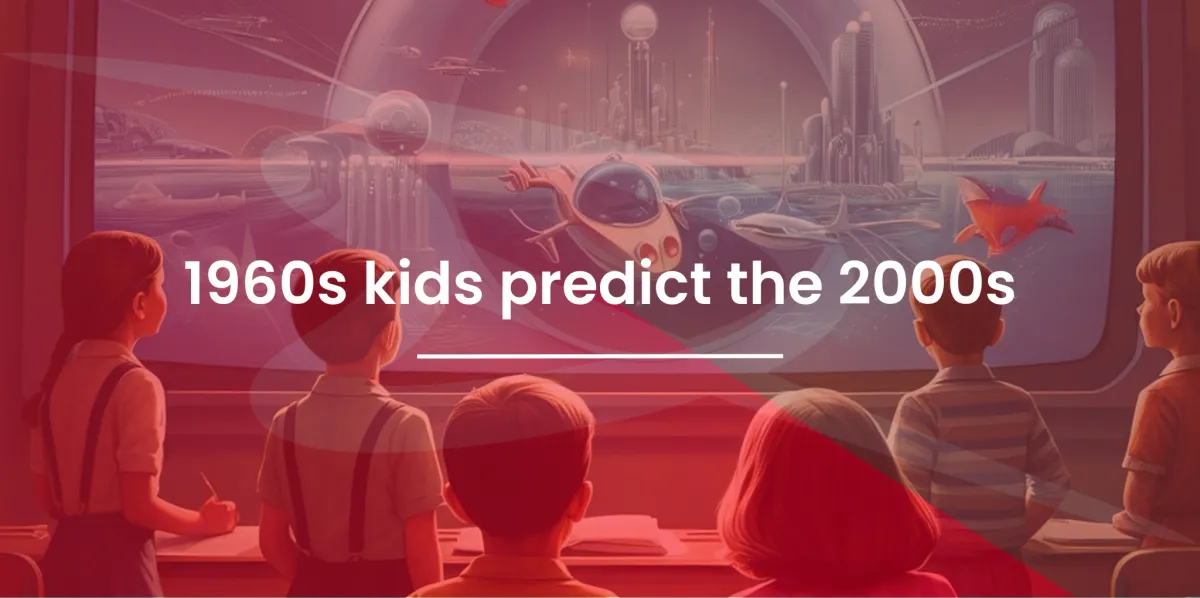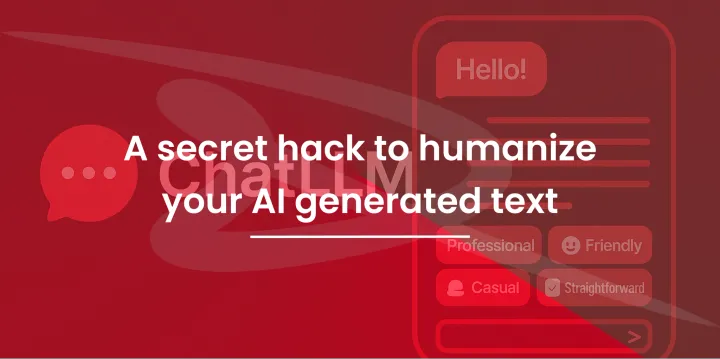1960s Kids Predict the Future
What if we could time travel to the past and ask children what the future would look like? That’s exactly what happened in 1966, when the BBC’s Tomorrow’s World segment asked children to predict what life would be like in the year 2000.

What if we could time travel to the past and ask children what the future would look like? That’s exactly what happened in 1966, when the BBC’s Tomorrow’s World segment asked children to predict what life would be like in the year 2000. Their fascinating responses ranged from remarkably accurate to wildly imaginative.
The predictions made over 50 years ago are astounding, blending genuine insight with the cultural fears and dreams of the time. From the rise of computers to the concerns about overpopulation, these children had quite the vision for the 21st century. Let's explore their predictions and analyze how close they were to reality.
Predicting the Future of Technology
The Rise of Computers
One of the key themes in the children's predictions was the increasing role of computers. One child prophetically said, “Computers are taking over now. By the year 2000, there won’t be enough jobs to go around. The only jobs available will be for people with high IQs and those who can work with computers.”
This prediction turned out to be spot-on in many ways. By 2000, computers had become integral to industries worldwide, and the demand for tech-savvy professionals had skyrocketed. Although automation hasn’t led to catastrophic job shortages (yet), it has undeniably reshaped the job market, paving the way for new professions in coding, IT, and data analytics.
Visual Communication
Another child described what sounds eerily similar to modern-day video calls. They envisioned a time when “the telephone will have a screen where you can see the person you’re talking to.” Fast-forward to now, and video conferencing through tools like Zoom, Microsoft Teams, and FaceTime has become an indispensable part of daily life, especially in an era defined by remote work.
Automation and Job Loss
The prediction that automation might lead to widespread unemployment reflected fears of the 1960s—but it remains a relevant issue today. Advances in AI and robotics continue to provoke debate about their impact on employment. While some sectors have been disrupted, automation has also created new opportunities in tech and engineering.
Societal and Environmental Concerns
Overpopulation

Many of the children expressed fears about overpopulation, with one saying, “The population will grow so much that people will have to live in domes in the Sahara or under the ocean.” While we haven’t built domed cities under the sea just yet, the concern about overpopulation mirrors real-world anxieties, particularly in urban centers where overcrowding and resource scarcity remain pressing issues.
Environmental Changes

Some children envisioned living environments entirely reshaped by climate change. Their concerns foreshadowed today’s pressing environmental challenges, including global warming, rising sea levels, and urban overpopulation. While domed cities may not exist yet, their imaginative solutions—including underwater living spaces or desert domes—align with current discussions about climate adaptation.
Dehumanization

One surprisingly astute boy predicted, “People will be regarded more as statistics than actual people.” This insight is shockingly relevant today, with increasing concerns about data privacy and the impact of social media algorithms. Technology has, in many ways, turned individuals into data points for marketers, businesses, and even political campaigns.
Ethical and Moral Issues
Nuclear Annihilation

The 1960s were steeped in nuclear anxieties due to the height of the Cold War, so it’s no surprise that many children mentioned fears of nuclear annihilation. One child somberly predicted that “some madman will start a nuclear war.” Thankfully, while nuclear tensions persist, humanity has avoided this catastrophic outcome so far.
Battery Farming

A particularly reflective prediction came from a child who stated that “sheep, cows, and livestock will be kept in batteries rather than grazing freely.” This description closely mirrors today’s factory farming practices, where livestock is raised in highly controlled, confined environments to maximize efficiency. At a time when factory farming was still in its infancy, this child’s foresight was ahead of its time.
The Impact of Machines

One child remarked, “All machines everywhere… doing everything for you. You’ll get all bored, and I don’t think it will be so nice.” Their fear of overreliance on machines is a concern that persists today. While machines have made life more convenient, they’ve also sparked debates about technology addiction, the loss of traditional skills, and the meaning of a life increasingly mediated by machines.
Reflecting on the Predictions
Looking back, it is remarkable how perceptive these children were about the trajectory of technology, society, and culture. While not every prediction came to fruition (thankfully we aren’t living in domes just yet), their insights reveal just how imaginative and forward-thinking they were.
It’s both a testament to the spirit of the 1960s and a reflection of enduring human concerns about progress. Even today, as we look towards the future, discussions about AI, climate change, and societal shifts echo the conversations these children sparked over 50 years ago.
Lessons for the Future
What can we learn from these predictions? For one, it shows how dreams and anxieties of the past shape the present. It also reminds us to approach current trends and innovations with a mix of optimism and caution. Just as those children in 1966 grappled with the possibilities and challenges of computers and automation, we too must critically engage with technologies like artificial intelligence, the Internet of Things, and renewable energy.
Predictions can be fun, enlightening, and sometimes hauntingly accurate. One thing is certain, though—we’ll always be curious about the future. After all, who wouldn’t want a sneak peek into the world of tomorrow?
And who knows? Decades from now, someone might look back at our predictions and wonder how we got so much right… or laugh at how much we got wrong.




Comments ()